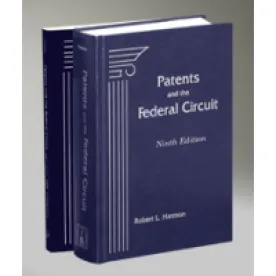Takeaway: The Board may exercise its discretion and deny institution of grounds where a petitioner does not explain adequately the relative strengths or weaknesses of the asserted grounds.
In its Decision, the Board found that Petitioner had shown “a reasonable likelihood of prevailing in demonstrating that at least one of the challenged claims is not patentable.” In particular, the Board instituted trial with respect to “claims 1 and 9-12 based on obviousness over Goetzl and Mayo and over Goetzl and Okigami.” The Board declined to institute the grounds of obviousness of claim 9 based on Goetzl, Mayo, and the understanding of a person of skill in the art; obviousness of claim 9 based on Goetzl, Okigami, and skill in the art; and anticipation of claims 1 and 10 by Barber. The ’375 patent generally relates to “devices and methods for determining and displaying travel data of sports equipment which has contact with the ground.”
First, the Board rejected Patent Owner’s argument that institution of a proceeding would violate the Seventh Amendment, citing Federal Circuit case law that rejected this argument in the context of reexamination.
Next, the Board addressed claim construction, stating that “terms in an unexpired patent are given their broadest reasonable construction in light of the specification of the patent.” The Board construed explicitly only those terms necessary for its decision. The term “said receiver is switched off” was construed to mean “said receiver is not receiving signals” and “said transmitter is switched off” to mean “said transmitter is not sending signals.”
Petitioner proposed constructions for terms reciting “only when … expected,” arguing that they should be interpreted to require “the receiver to be switched on ‘only in time’ for reception of a transmitted signal.” Referring to a definition of the word “expect,” the Board defined the terms to mean “only when said transmitter anticipates or looks forward to the coming or occurrence of transmitting.” Petitioner also proposed several constructions of means-plus-function claim limitations, which Patent Owner did not oppose. Therefore, the Board adopted Petitioner’s proposed constructions.
Before addressing the asserted grounds, the Board rejected Patent Owner’s argument that the Petition improperly incorporated its expert declaration by reference. Instead, the Board found the citations to the declaration as providing further support for arguments that were set forth in the Petition.
With respect to obviousness of claims 1 and 9-12 over Goetzl and Mayo, the Board was persuaded that Petitioner had shown a reasonable likelihood of prevailing. The Board rejected Patent Owner’s argument that a person of ordinary skill in the art would not have combined the references. In particular, the Board was persuaded by the evidence of record that “a skilled artisan would have determined that Goetzl recognized the need of reducing power consumption,” and that “Mayo is directed to reducing battery consumption.” The Board also rejected Patent Owner’s arguments related to the “transmitter and receiver synchronization” and the “only when … expected” term, finding Petitioner’s arguments persuasive.
Next, the Board addressed obviousness of claims 1 and 9-12 over Goetzl and Okigami, rejecting Patent Owner’s argument that the combination of references failed to disclose the “only when … expected” limitation.
Finally, the Board exercised its discretion and did not institute review of: claim 9 as obvious over Goetzl, Mayo, and skill in the art; claim 9 as obvious over Goetzl, Okigami, and skill in the art; or claims 1 and 10 as anticipated by Barber. In particular, the Board noted that “Petitioner does not explain adequately the relative strengths or weaknesses of the grounds on which [the Board] instituted and the other asserted grounds.”
Garmin Int’l, Inc. v. MSPBO, LLC, IPR2014-01379
Paper 11: Decision on Institution of Inter Partes Review
Dated: March 3, 2015
Patent: 6,744,375 B1
Before: Debra K. Stephens, Josiah C. Cocks, and James B. Arpin
Written by: Stephens
Related Proceedings: MSPBO, LLC v Adidas N. Am., Inc., No. 1:13-cv-02287 (D. Colo.); MSPBO, LLC v. Garmin Int’l, Inc., No. 1:13-cv-3388 (D. Colo.)



 />i
/>i

